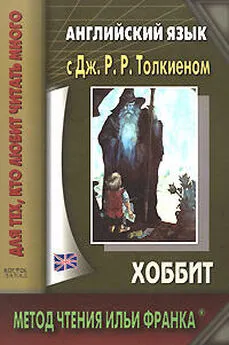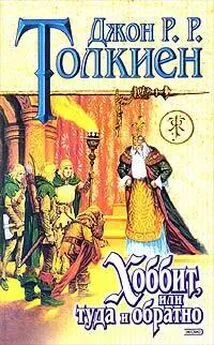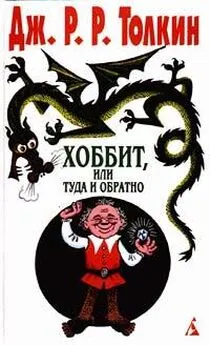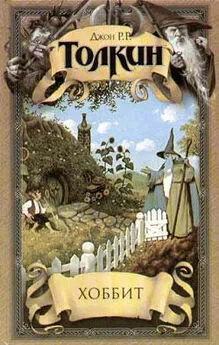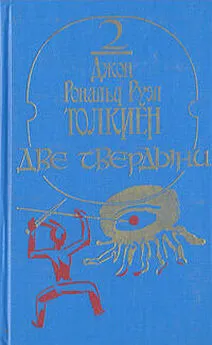Джон Толкиен - Английский язык с Дж. Р. Р. Толкиеном. Хоббит
- Название:Английский язык с Дж. Р. Р. Толкиеном. Хоббит
- Автор:
- Жанр:
- Издательство:АСТ, Восток-Запад
- Год:2008
- Город:Москва
- ISBN:978-5-17-048593-2, 978-5-478-00597-9
- Рейтинг:
- Избранное:Добавить в избранное
-
Отзывы:
-
Ваша оценка:
Джон Толкиен - Английский язык с Дж. Р. Р. Толкиеном. Хоббит краткое содержание
В книге предлагается произведение на английском языке Джона Р. Р. Толкиена «Хоббит», адаптированное (без упрощения текста оригинала) по методу Ильи Франка. Уникальность метода заключается в том, что запоминание слов и выражений происходит за счет их повторяемости, без заучивания и необходимости использовать словарь.
Пособие способствует эффективному освоению языка, может служить дополнением к учебной программе.
Предназначено для студентов, для изучающих английский язык самостоятельно, а также для всех интересующихся английской культурой.
Пособие подготовила Ольга Ламонова.
Английский язык с Дж. Р. Р. Толкиеном. Хоббит - читать онлайн бесплатно полную версию (весь текст целиком)
Интервал:
Закладка:
curiosity [kjʋ (ǝ) rɪˈɔsɪtɪ] alight [ǝˈlaɪt] caught [kɔ: t]
Tonight the Lord of the Eagles was filled with curiosity to know what was afoot; so he summoned many other eagles to him, and they flew away from the mountains, and slowly circling ever round and round they came down, down, down towards the ring of the wolves and the meeting-place of the goblins. A very good thing too! Dreadful things had been going on down there. The wolves that had caught fire and fled into the forest had set it alight in several places. It was high summer, and on this eastern side of the mountains there had been little rain for some time. Yellowing bracken, fallen branches, deep-piled pine-needles, and here and there dead trees, were soon in flames. All round the clearing of the Wargs fire was leaping.
But the wolf-guards did not leave the trees (но волки-стражники не покидали деревья). Maddened and angry (обезумевшие и рассерженные) they were leaping and howling round the trunks (они подпрыгивали и завывали вокруг стволов деревьев), and cursing the dwarves (и проклинали гоблинов) in their horrible language (на своем ужасном языке), with their tongues hanging out (их языки /были при этом/ высунуты), and their eyes shining as red and fierce as the flames (и их глаза светились таким же красным /светом/ и такой же свирепостью, как и пламя). Then suddenly goblins came running up yelling (затем внезапно появились гоблины, которые бежали и пронзительно кричали). They thought a battle with the woodmen was going on (они думали, что идет битва с лесорубами); but they soon learned what had really happened (но они вскоре поняли, что же произошло на самом деле; to learn — изучать, учить ). Some of them actually sat down and laughed (некоторые из них даже сели и захохотали). Others waved their spears (другие замахали своими копьями) and clashed the shafts (и забряцали древками) against their shields (о свои щиты). Goblins are not afraid of fire (гоблины не боятся огня), and they soon had a plan (и вскоре у них был план) which seemed to them most amusing (который им показался очень забавным; to amuse — забавлять ). Some got all the wolves together in a pack (некоторые из них собрали всех волков в одну стаю). Some stacked fern (некоторые сложили в кучи папоротник) and brushwood (и валежник) round the tree-trunks (вокруг стволов деревьев). Others rushed round (другие разбежались вокруг) and stamped and beat (и топали ногами и стучали), and beat and stamped (и хлопали и топали), until nearly all the flames were put out (до тех пор, пока все пламя не было потушено) — but they did not put out the fire (но они не затушили тот огонь) nearest to the trees (который был ближе всего к деревьям) where the dwarves were (где были гномы).
fierce [fɪǝs] yell [jel] brushwood [ˈbrʌʃwʋd]
But the wolf-guards did not leave the trees. Maddened and angry they were leaping and howling round the trunks, and cursing the dwarves in their horrible language, with their tongues hanging out, and their eyes shining as red and fierce as the flames. Then suddenly goblins came running up yelling. They thought a battle with the woodmen was going on; but they soon learned what had really happened. Some of them actually sat down and laughed. Others waved their spears and clashed the shafts against their shields. Goblins are not afraid of fire, and they soon had a plan which seemed to them most amusing. Some got all the wolves together in a pack. Some stacked fern and brushwood round the tree-trunks. Others rushed round and stamped and beat, and beat and stamped, until nearly all the flames were put out — but they did not put out the fire nearest to the trees where the dwarves were.
That fire they fed with leaves (этот огонь они поддерживали листьями; to feed (fed) — кормить, давать пищу ) and dead branches and bracken (и сухими ветвями и папоротником). Soon they had a ring of smoke and flame (вскоре они создали кольцо из дыма и огня) all round the dwarves (вокруг гномов), a ring which they kept from spreading outwards (кольцо, которому они не позволяли распространяться дальше наружу; to keep (kept) — держать, хранить, беречь ); but it closed slowly in (но оно медленно обступало /деревья/), till the running fire was licking the fuel (до тех пор, пока беглый огонь начал лизать топливо) piled under the trees (сваленное в кучи под деревьями). Smoke was in Bilbo’s eyes (дым стоял в глазах Бильбо), he could feel the heat of the flames (он мог чувствовать жар пламени); and through the reek he could see the goblins (и сквозь дым и копоть он мог видеть гоблинов) dancing round and round in a circle (танцующих в кругу) like people round a midsummer bonfire (подобно людям, /танцующим/ вокруг костра /в честь/ летнего солнцестояния). Outside the ring of dancing warriors (за пределами кольца танцующих воинов) with spears and axes (с копьями и секирами) stood the wolves at a respectful distance (стояли волки на почтительном расстоянии), watching and waiting (наблюдая и выжидая).
branch [brɑ: ntʃ] outwards [ˈaʋtwǝdz] warrior [ˈwɔrɪǝ]
That fire they fed with leaves and dead branches and bracken. Soon they had a ring of smoke and flame all round the dwarves, a ring which they kept from spreading outwards; but it closed slowly in, till the running fire was licking the fuel piled under the trees. Smoke was in Bilbo’s eyes, he could feel the heat of the flames; and through the reek he could see the goblins dancing round and round in a circle like people round a midsummer bonfire. Outside the ring of dancing warriors with spears and axes stood the wolves at a respectful distance, watching and waiting.
He could hear the goblins beginning a horrible song (он мог слышать, как гоблины затянули: «начали» ужасную песню):
Fifteen birds in five firtrees (пятнадцать птичек на пяти елях /сидели/),
their feathers were fanned in a fiery breeze (их перья развивались на огненном ветерке)!
But, funny little birds (но, забавные мелкие пташки), they had no wings (нет у них крыльев)!
O what shall we do (о, что же нам сделать) with the funny little things (с забавными малютками)?
Roast ‘em alive (зажарить /на гриле/ их живьем; ‘em = them ), or stew them in a pot (или потушим их в кастрюле), fry them (зажарим их), boil them (сварим их) and eat them hot (и съедим их горячими)?
Then they stopped (затем они остановились) and shouted out (и закричали): “Fly away little birds (улетайте, маленькие пташки)! Fly away if you can (улетайте, если сможете)! Come down little birds (спускайтесь, маленькие птички), or you will get roasted in your nests (или вы зажаритесь в своих гнездышках)! Sing, sing little birds (пойте, пойте, маленькие птички)! Why don’t you sing (почему же вы не поете)?”
breeze [bri: z] roast [rǝʋst] stew [stju: ] bird [bǝ: d] fir-tree [ˈfǝ: tri:]
He could hear the goblins beginning a horrible song:
Fifteen birds in five firtrees,
their feathers were fanned in a fiery breeze!
But, funny little birds, they had no wings!
O what shall we do with the funny little things?
Roast ‘em alive, or stew them in a pot,
fry them, boil them and eat them hot?”
Then they stopped and shouted out: “Fly away little birds! Fly away if you can! Come down little birds, or you will get roasted in your nests! Sing, sing little birds! Why don’t you sing?”
“Go away (убирайтесь)! little boys (мальчишки)!” shouted Gandalf in answer (закричал Гэндальф в ответ). “It isn’t bird-nesting time (сейчас не время охотиться за птичьими гнездами; nest — гнездо ). Also naughty little boys (а также, непослушные мальчишки) that play with fire (которые играют с огнем) get punished (всегда наказываются). ” He said it to make them angry (он сказал это, чтобы разозлить их), and to show them (и чтобы показать им) he was not frightened of them (что он не боялся их) — though of course he was (хотя, конечно же, он был испуган), wizard though he was (хотя он и был волшебником). But they took no notice (но они не обратили внимания), and they went on singing (и они продолжали петь).
Burn, burn tree and fern (горите, горите деревья и папоротник)!
Shrivel and scorch (иссушивайтесь и опаляйтесь)!
A fizzling torch (шипящий факел)
To light the night (который осветит ночь) for our delight (к нашему восторгу),
Ya hey (эй, эй)!
Bake and toast ‘em (запечем и подрумяним их), fry and roast ‘em (поджарим и зажарим их) till beards blaze (пока бороды не загорятся), and eyes glaze (и глаза не потускнеют; glaze — глазурь; to glaze — тускнеть, стекленеть /о глазах/ ); till hair smells (пока волосы не запахнут) and skins crack (и кожа не лопнет), fat melts (жир плавится), and bones black (и кости почернели) in cinders lie (в золе лежат) beneath the sky (под небесами)!
So dwarves shall die (так умрут гномы), and light the night for our delight (и зажгут ночь, к нашему восторгу), Ya hey (эй-эй)!
Ya-harri-hey!
Ya hoy (я-хой)!
naughty [ˈnɔ: tɪ] punish [ˈpʌnɪʃ] cinder [ˈsɪndǝ]
“Go away! little boys!” shouted Gandalf in answer. “It isn’t bird-nesting
time. Also naughty little boys that play with fire get punished. ” He said it to make them angry, and to show them he was not frightened of them — though of course he was, wizard though he was. But they took no notice, and they went on singing.
Читать дальшеИнтервал:
Закладка:
